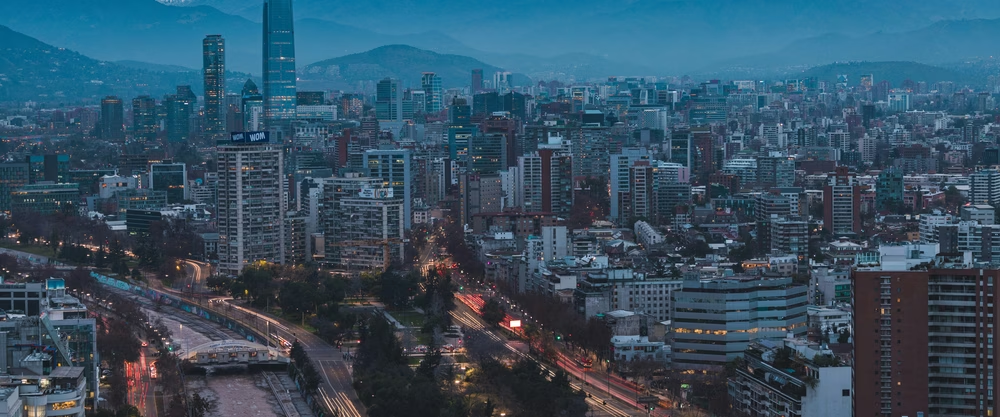

Are you thinking about studying in Chile? Then this article is for you! We’ll walk you through everything you need to know if you’re planning to go on an exchange to this South American country, from the basic requirements for international students to why Chile is such a great choice, what to do while you’re there, and loads more. From the top university cities to the best places to live, you’ll find all the essentials to help you plan your experience.
Chile is one of the most popular destinations in Latin America, and for good reason. It ticks all the boxes: great education, stunning scenery, and a vibrant, rich culture. Depending on where you choose to study, you could be surrounded by mountains, beaches, deserts or forests. On top of that, it’s a pretty safe country, the locals are friendly, and there’s no shortage of amazing places to explore – from Patagonia to the Atacama Desert.
The city most international students go for in Chile is Santiago, the capital. It’s home to many of the country’s top universities, and it’s a modern city with loads going on, from cultural events to great public transport, and it’s not far from mountains or vineyards you can visit in your spare time. Another favourite is Valparaíso, a bohemian coastal city full of street art, colourful staircases, and a buzzing uni vibe with loads of history. And, if you fancy somewhere a bit quieter, Concepción is a great place too as it’s down south, surrounded by nature and still has a lively student scene.
One of the most important things you’ll need to sort out is your visa, and for that —plus a few other procedures— you’ll need to have some documents ready. Here are the most common requirements for international students heading to Chile:
There are plenty of reasons why going on an exchange to this Latin American country is a good decision!
Chilean culture is an interesting mix of indigenous roots, Spanish traditions, and a very marked contemporary identity. Its streets breathe history, from the Mapuche people to European influences, and its festivals, art, and cuisine reflect that diversity. In addition, its music and literature (with authors such as Pablo Neruda or Gabriela Mistral) and local cinema are part of the cultural experience you can have as a student.
The language is another great reason to choose Chile if you're looking to improve your Spanish. Although the Chilean accent may seem fast and colloquial at first, it's a good opportunity to develop listening comprehension and speaking skills.
The warmth and kindness of its people also make studying in Chile special. Chileans tend to be friendly, welcoming, and willing to help. In addition, the student environment is usually inclusive and diverse, with many activities to integrate and make friendships that last a lifetime.
Another reason to choose this Latin country is that it has several universities recognised in Latin America and worldwide. Many of them offer exchange programs and agreements with foreign institutions. Some are among the best on the continent, especially in areas such as social sciences, engineering, medicine, and astronomy.
If you’re thinking of studying in Chile, get ready! There’s loads to do beyond just hitting the books. It’s a massive and varied country, with each region offering something totally different.
Up north, you can check out the Atacama Desert, one of the driest places on Earth, with otherworldly landscapes, geysers, salt flats and some of the best stargazing spots you’ll ever see. You can also visit cities like Arica and Iquique, where you’ll find warm beaches and cool Andean culture.
The central area’s perfect if you’re into city life. Santiago’s buzzing with lively neighbourhoods, museums, hills, and parks, while Valparaíso is all about street art, quirky staircases and stunning sea views. Plus, vineyards, the Andes, and the coast are all within easy reach.
Down south is the spot for nature lovers: lakes, volcanoes, forests and national parks in places like Araucanía, Los Lagos, and all the way down in Chilean Patagonia. If you’re the adventurous type, there’s hiking, kayaking, wildlife spotting, and even glacier exploring to keep you busy.
While you’re studying in Chile, don’t miss the opportunity to know the different features of their culture. Jump into traditional festivals like Fiestas Patrias, have a go at dancing the cueca, try local dishes (you’ve got to try a proper “empanada” or “pastel de choclo”) and dive into the city’s cultural scene with fairs, live music and theatre.
Find the ideal accommodation in your desired location